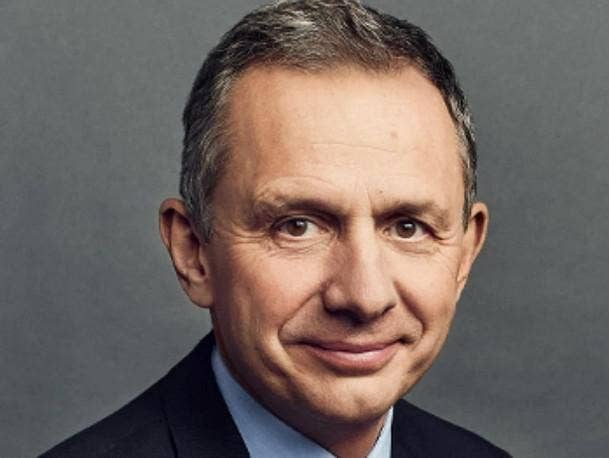HP CEO: Workforce Experience Platform ‘Key’ To Software, Services Growth
In a call with journalists ahead of the PC and print giant’s fourth-quarter earnings report, HP CEO Enrique Lores also discussed why he’s ‘more convinced’ of the impact of AI PCs than before and why any discussions of tariffs are ‘too speculative’ for now.

HP Inc. CEO Enrique Lores said the company’s Workforce Experience Platform is “key” to future growth of its software and services businesses.
Lores made the comments ahead of the release of HP’s fourth-quarter earnings report, which said the company’s revenue grew 1.7 percent year-over-year to $14.1 billion. This marked its second quarter of revenue growth in a row and was slightly above Wall Street’s expectations.
[Related: Analysis: HP Reorganization Elevates Ex-Poly CEO’s Role In Growth Strategy]
The PC and print giant’s earnings per share came in at 93 cents, which was 3 percent higher than it was a year ago and slightly above the average estimate of financial analysts.
Software and services are two categories that HP expects to grow faster than its core PC and print businesses, as outlined in its Future Ready Plan two years ago. Other key growth areas include video conferencing solutions and adjacent products within its Hybrid Systems business as well as gaming solutions.
According to Lores, these segments cumulatively contributed 20 percent of HP’s total revenue for its 2024 fiscal year, which ended in October and amounted to $53.6 billion, down 0.3 percent from the previous year.
To get partners and customers behind HP’s software and services offerings, the company has been working over the past few years to consolidate most of them into the Workforce Experience Platform, which it bills as an “AI-powered digital employee experience” that can monitor and manage a variety of devices.
“The Workforce Experience Platform is a key product for us to be able to continue to accelerate not only our software business but also our services business because of the value that it provides to customers,” Lores said in a briefing with journalists and analysts on Tuesday.
Next year, HP will focus on expanding the Workforce Experience Platform’s functionality so that it can manage more types of devices such as printers, according to Lores.
The company also plans to integrate the technology it acquired through its September acquisition of collaboration management software provider Vyopta “to manage rooms and to manage other devices in the office,” the CEO said.
“We are very optimistic about the impact that the Workforce [Experience] Platform is going to have, and you are going to see us continue to invest on that in the coming months,” he said.
Discussion On Trump Tariffs ‘Too Speculative’
During his call with journalists and analysts, Lores was asked about the potential impact of the tariffs President-elect Trump has promised to levy on China, Mexico and Canada upon assuming office in January.
In posts to his Truth Social platform, Trump said on Monday that he would impose a 25 percent tariff on all goods coming from Mexico and Canada as well as an extra 10 percent tariff on Chinese goods over “any additional tariffs.”
Lores said HP has not included the impact of the proposed tariffs in HP’s first-quarter guidance, which forecasts an earnings per share between 70-76 cents.
“It is too speculative. Every day there is a new direction, so we're not going to include that in our plans,” he said.
However, the CEO said, the company has been working over the past three years to make its “supply chain footprint more resilient.”
“We have been building factories in different parts of the world, and we are now in a much better position than we were a few years ago. And we think, competitively, we're in a strong position, so we will work closely with the new administration to do the best thing for our customers and shareholders,” Lores said.
Lores ‘More Convinced’ About Impact Of AI PCs Now
Lores said the software solutions ISVs are developing to take advantage of new AI PCs has made the company “more convinced than we were a few months ago about the impact” the product category will have,” especially on businesses.
While he said AI PC shipments in the fourth quarter were in line with expectations” and shipments of next-generation AI PC that meet Microsoft’s Copilot+ PC requirements have been small, “the reception has been positive.”
“What is very encouraging is to see the solutions that software companies are starting to develop on top of them. Again, we showed some of them in our innovation event a few weeks. Clearly they are going to have a very strong impact from a productivity perspective,” he said.
HP’s Fourth-Quarter Earnings Highlights
HP’s Personal Systems business saw net revenue grow 2 percent year over year, with 5 percent growth in the commercial segment offsetting a 4 percent decline in the consumer segment, according to the company.
From a shipment perspective, commercial PC units were up 4 percent while consumer units were down 3 percent within the division.
As for HP’s Printing business, net revenue was up 1 percent to $4.5 billion, with the a 3 percent increase in the consumer segment slightly offsetting a 2 percent decline in the commercial segment.
“We grew share in Personal Systems, specifically in commercial, and we also grew share in print,” Lores said.